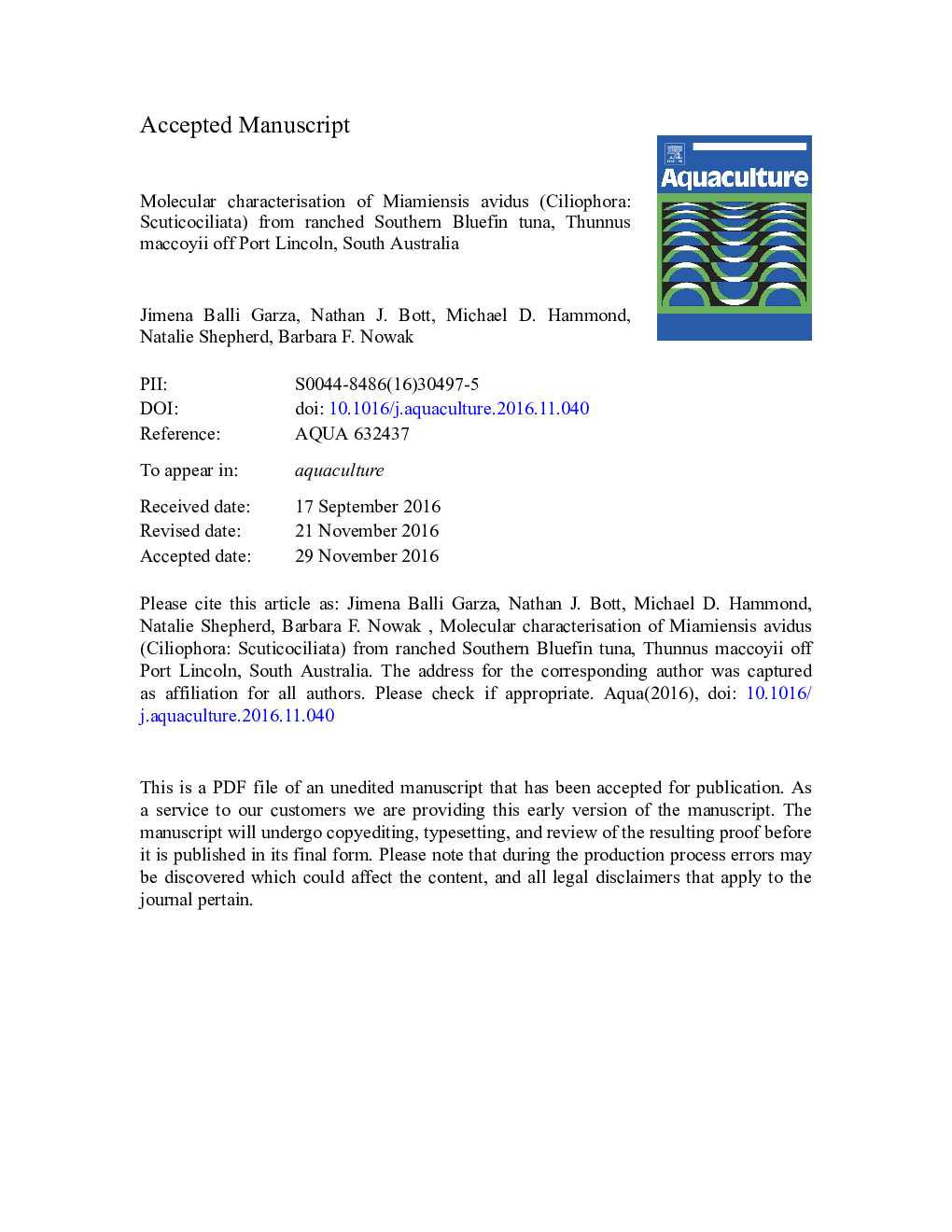| Article ID | Journal | Published Year | Pages | File Type |
|---|---|---|---|---|
| 5539123 | Aquaculture | 2017 | 23 Pages |
Abstract
Scuticociliates are opportunistic protozoan pathogens present in a wide range of teleost hosts. Uronema spp. and Miamiensis spp. are the two most common genera recorded from scuticociliatosis cases in farmed and ornamental fish. Southern bluefin tuna (Thunnus maccoyii) (SBT) ranching is a high value aquaculture sector, situated off Port Lincoln, South Australia. Uronema nigricans has been previously associated with SBT swimmer mortality syndrome and was considered to be the causative agent. We conducted the first molecular characterisation of swimmer syndrome agent from affected SBT. Comparison of SSU rDNA and mitochondrial cytochrome c oxidase 1 sequences from the cerebrospinal fluid from SBT affected by swimmer syndrome and Uronema marinum samples, and phylogenetic analyses identified the scuticociliate present in SBT samples as Miamiensis avidus. Bayesian Inference analyses of both partial gene sequences of the Port Lincoln isolates form a clade with known M. avidus to the exclusion of Uronema spp. This shows that M. avidus is associated with swimmer syndrome and is present in the environment around SBT leases. Based on our molecular data, there is no evidence of Uronema spp. presence in the infected SBT. This is the first time M. avidus has been documented in Australia.
Keywords
Related Topics
Life Sciences
Agricultural and Biological Sciences
Aquatic Science
Authors
Jimena Balli Garza, Nathan J. Bott, Michael D. Hammond, Natalie Shepherd, Barbara F. Nowak,
